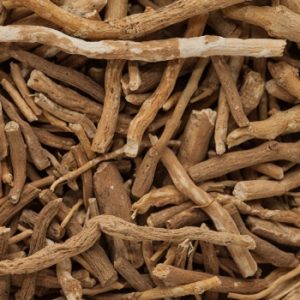
More evidence that low-calorie sweeteners are bad for your health
Studies show that artificial sweeteners can raise the risk of hypertension, metabolic syndrome, type 2 diabetes and heart disease, including stroke.

Natural Health News — Supplementing with ashwagandha root can normalise thyroid hormone levels in hypothyroid individuals and also maintain normal thyroid function in healthy people, according to a new study.
Ashwagandha (Withania somnifera) is an adaptogenic herb used widely in Ayurvedic medicine. Supplements have grown in popularity in the mainstream market due to the herb’s ability to reduce stress and anxiety, decrease serum cortisol and stress-related food cravings, enhance memory and cognition, increase endurance and strength, support healthy sexual function, and in men increase natural testosterone.
In this small trial, published in the Journal of Alternative and Complementary Medicine, Indian researchers evaluated the effects of a commercial ashwagandha supplement (KSM-66, manufactured by Ixoreal Biomed) on thyroid hormone levels.
» Ashwagandha is an herbal remedy in the Ayurvedic tradition, which is gaining popularity in the mainstream.
» It is an adaptogenic herb which helps the body combat the effects of stress and anxiety, decreases serum cortisol and stress-related food cravings, enhances memory and cognition and increases endurance and strength.
» In a new study 600mg of ashwagandha per day was shown to improve thyroid function by helping to normalise levels of thyroid hormones.
The double blind, randomised, placebo-controlled trial included 50 subjects who received either ashwagandha supplements (600 mg daily) or placebo for eight weeks. Results showed that the herbal supplement helped balance thyroid stimulating hormones (TSH), serum thyroxine (T4) and serum triiodothyronine (T3) – achieving change toward normalisation of 19%, 45% and 21% respectively.
“The results of the present study are in accordance with previous studies,” wrote the researchers. “The results indicate a possible role for ashwagandha in regulating HPT axis. The anti-stress and cortisol-lowering effect of ashwagandha may provide a suitable explanation for the current outcome.”
A traditional healer
Ashwagandha has a history of use in Ayurvedic medicine that dates back as far as 4,000 years to the teaching of renowned scholar Punarvasu Atreya, and in subsequent works that make up the Ayurvedic tradition.
While it has been studied for a variety of beneficial effects, very few modern studies have investigated on the herb’s beneficial effects on thyroid function. This is the first clinical study that supports the traditional claim of ashwagandha as a thyroid modulator.
“The outcome of the present study highlights the beneficial role of ashwagandha root extract for normalizing thyroid hormone levels in subclinical hypothyroid patients; however, further studies are required to elucidate the underlying mechanisms of ashwagandha,” concluded the researchers.

Please subscribe me to your newsletter mailing list. I have read the
privacy statement